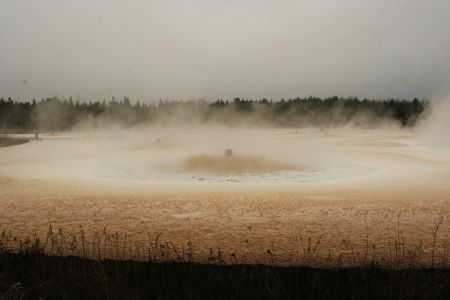K'JIPUKTUK (HALIFAX) – A lack of healthy, affordable food is a big problem in Pictou Landing First Nation, a small Mi'kmaq community of roughly 400 people.
Nonetheless, many people in Pictou Landing are not growing their own food or accessing traditional foods such as wild game, seafood and berries.
The community is close to the Abercrombie Point Pulp and Paper Mill and the intensely polluted Boat Harbour lagoon, and people are scared that eating those foods will poison them.
This is one of the main findings of a project, initiated from within the community, that looks at food security issues and solutions.
"Boat Harbour [is the biggest problem] because I find the situation is what comes to mind first when I think of problems within the community, and I find it is the most disturbing problem...", a community member states in the report.
"A lot of people are thinking that planting gardens is easy and will take care of our problem, but what we're seeing is that there's a lot of people who lack confidence in our environment for the gardens, they don't trust the air, they don't trust the soil, they don't trust the water because of Boat Harbour."
Dr. Irena Knezevic, a researcher associated with FoodArc, assisted the community group in its activities.
"We knew that pollution and community concerns about Boat Harbour were serious issues, but we did not expect them to dominate so much of our conversations," Knezevic writes in an email dated May 29th.
"We did not set out to explore the issue of Boat Harbour – there is already another, bigger project looking at that (led by Heather Castleden at Dalhousie). We wanted to focus on food security, which is one of the most pressing issues in many Aboriginal communities in Canada," Knezevic adds.
Apart from pollution, Pictou Landing First Nation faces many challenges similar to the ones faced by other poor and marginalized communities in rural Nova Scotia.
The report talks about lack of a decent grocery store in the community and no public transportation to get to the store that is a twenty minute drive away.
And social assistance does not come close to covering the bills.
"There is a need for all levels of government to take food insecurity more seriously – those in position of power rarely experience such challenges and there is a need to bring food (in)security more effectively to the forefront of social policy," the report recommends.
The report makes many practical suggestions that could bring a degree of healthy relief for the many community members who struggle to make ends meet.
Things like cooking classes, shuttle services to the grocery store or the food bank in New Glasgow, bulk buying of fresh food, investing in a communal freezer, community gardening, possibly even partnering with a farm.
"Those are things that can be helpful, but they cannot solve the problem, because the problem is systemic," Knezevic cautions in a follow-up phone call.
Memories of better times still persist in the community.
"Everybody else down here used to pick berries and have gardens, and they used to eat from the gardens, carrots, potatoes, corn, peas, tomatoes, whatever, and now these days you can't do that anymore," a community member is quoted as saying in the report.
"We used to live off the land, and we used to swim down at the shore before pollution came, and we'd never even go home for lunch."
"We'd have strawberries, and blueberries, and green apples, and sore stomachs after too (laughter). But all we would do is dig out clams at the shore, and bring a pot, and cook clams there."
See also:
In whose backyard? - video documents environmental racism in Nova Scotia
Monitoring of Abercrombie mill site shows extensive surface water contamination
Follow Robert Devet on Twitter @DevetRobert



